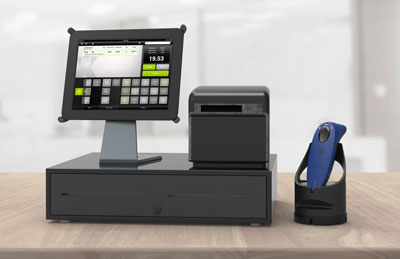The Benefits of a Good POS System
Blog by Amelia Albanese
Support for commonly used OS and mobile devices: For customer accessibility, it’s imperative to be compatible with the majority of your customers’ mobile devices. Their use of your POS system should run smoothly, inviting them for recurring visits to your establishment with the use of their own devices and operating systems (i.e. Apple, Samsung, Windows).
Efficiency and accuracy: Customers demand answers, quick service and response. A well-rounded POS system should equip employees with the proper tools to speed their services and maintain happy customers.
Additional training and support for staff: POS users need to be well-versed in the system. If staff can’t understand the system, then they can’t help run the service. When that happens, customers can get impatient and look for business elsewhere. A good POS provider should be able to provide training and support for all users – whether it’s for troubleshooting or onboarding new users.
Accurate and timely updates on inventory and stock levels: Stock levels at both online and brick-and-mortar stores should be easily accessible and viewed via the POS system you select.
Inventory accessibility to staff: When staff are working with customers, being able to easily and quickly check the availability of products is key. Customers must be kept satisfied while they wait for backorders or shipments from a warehouse. They’re apt to easily become annoyed with staff who have no idea whether item(s) are in stock or when said items will be available for purchase. This is where a POS barcode scanner can come in handy.
Analytics: Tracking popular products and sales statistics provides valuable insight. It lets you see whether more or less of particular products should be ordered, and what the current and changing trends are for new and old products.
Marketing campaigns: With all of the data collected from your POS system, that information can be used to improve business with new campaigns to promote particular services, products or sales. When selecting a POS system, it’s important to understand what data will be collected and how you can make the best use of it.
Flexibility and growth: Customers’ needs and desires change, which means so do products and services. If a business wants to thrive, it also needs to change with the times by remaining flexible, adding or altering services/products. The right POS for your business is one that can be adapted to changes and is an enabler of flexibility, rather than a hindrance.
Accept payments from most any popular payment method: Compatibility with your customers is key to sealing a deal. A customer may be in love with your product or service, but a sale can easily fall through if the payment method is uncooperative or doesn’t work. This should be considered table stakes when it comes to selecting a POS.
Email receipts: Our modern age allows for many conveniences, including ditching receipts that fill filing cabinets, overstuff wallets or are easily lost. Be sure your POS system offers the simplest of conveniences from a sale – an emailed receipt.
In an increasingly crowded POS market, it can be difficult to navigate all of the options. Using the above criteria can help ensure you select the right system for your use case, to ultimately keep your business running smoothly and your customers happy.